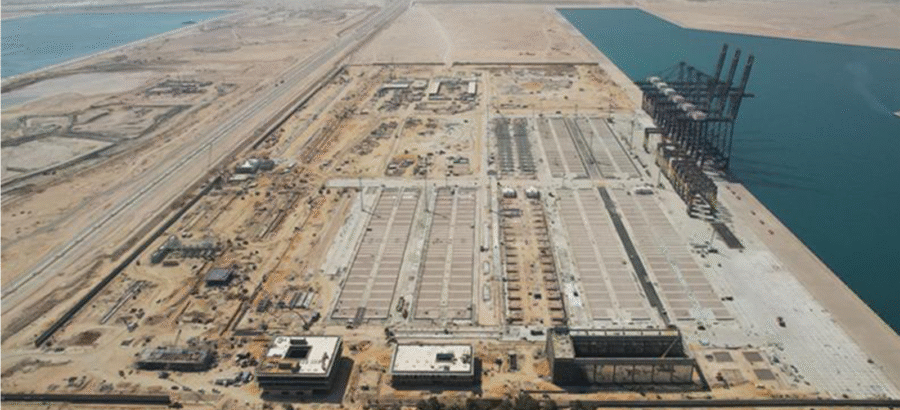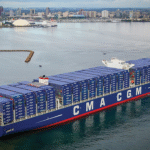Egypt as a Global Maritime Hub
Egypt has long been positioned at the crossroads of global trade routes, bridging the Mediterranean and the Red Sea through the world-renowned Suez Canal. Today, the country is reinforcing this strategic advantage with modern infrastructure, digital transformation, and a renewed focus on maritime logistics establishing itself as a competitive global hub for shipping and port operations.
A Strategic Gateway Connecting Continents
The Suez Canal remains Egypt’s most vital maritime artery and one of the most important trade passages in the world. It accommodates nearly 12% of global trade, enabling ships to save thousands of miles in transit between Asia and Europe. Beyond its geographical advantage, Egypt has increasingly focused on optimising the canal’s efficiency, expanding its capacity, and introducing advanced digital control systems that reduce navigation times and enhance safety.
This strategic position has placed Egypt at the centre of international supply chains, making it an indispensable link in global trade and energy transport.
Expanding Port Infrastructure
In recent years, Egypt has invested heavily in developing its port network to strengthen its role as a regional logistics hub. The ports of Port Said, Alexandria, Damietta, Sokhna, and East Port Said have all undergone significant modernisation, focusing on container handling, dry bulk terminals, and liquid cargo operations.
The expansion of Ain Sokhna Port and the East Port Said Logistics Zone represents a major leap towards Egypt’s ambition of becoming a one-stop destination for shipping, bunkering, and value-added logistics. These developments are designed to meet international standards and serve both regional and global maritime traffic.
The creation of industrial and logistics zones adjacent to major ports has also enhanced Egypt’s ability to attract international investors and promote efficient integration between maritime and inland transport systems.
The Rise of Integrated Marine Logistics
Beyond port upgrades, Egypt is embracing a more integrated approach to marine logistics. This includes improved coordination between shipping agencies, customs, and supply chain operators. The adoption of digital port community systems has streamlined documentation and vessel clearance, reducing operational delays.
Additionally, Egypt’s growing expertise in ship services including bunkering, provisions supply, technical support, and navigation assistance is further consolidating its reputation as a complete maritime service centre.
Commitment to Sustainable Maritime Operations
In line with global environmental goals, Egypt has taken active steps toward greener maritime practices. Compliance with IMO 2020 regulations, which limit sulphur emissions from ships, has been successfully implemented across Egyptian ports.
Investments are also being channelled into cleaner fuel alternatives, energy-efficient port equipment, and environmental monitoring systems. This aligns with Egypt’s broader Vision 2030 strategy, which promotes sustainable growth in infrastructure and industry while maintaining environmental responsibility.
Enhancing Regional Connectivity
Egypt’s maritime sector not only serves global shipping but also plays a pivotal role in regional trade. With strong links to North Africa, the Arabian Gulf, and the Mediterranean, Egyptian ports facilitate cargo movement across multiple continents.
New logistics corridors and intermodal transport links between ports and inland industrial zones have made cargo handling faster and more reliable. These developments allow Egypt to serve as a vital transshipment and redistribution centre for goods moving between Asia, Africa, and Europe.
The Future of Egypt’s Maritime Ambition
The Egyptian government continues to work closely with international partners to promote further investment in ship repair facilities, dry docks, and offshore support infrastructure. The Suez Canal Economic Zone (SCZONE), in particular, has emerged as a cornerstone project attracting global interest in shipbuilding, renewable energy, and advanced logistics solutions.
With its growing portfolio of maritime services, Egypt is transforming from a passageway for trade into a fully integrated logistics ecosystem capable of supporting the entire supply chain from vessel management to cargo delivery and offshore operations.
Conclusion
Egypt’s ongoing transformation into a global maritime hub reflects a balanced strategy that combines infrastructure development, regulatory reform, sustainability, and technology-driven efficiency. By enhancing port performance and expanding value-added marine services, the nation is strengthening its position at the heart of international maritime trade.






